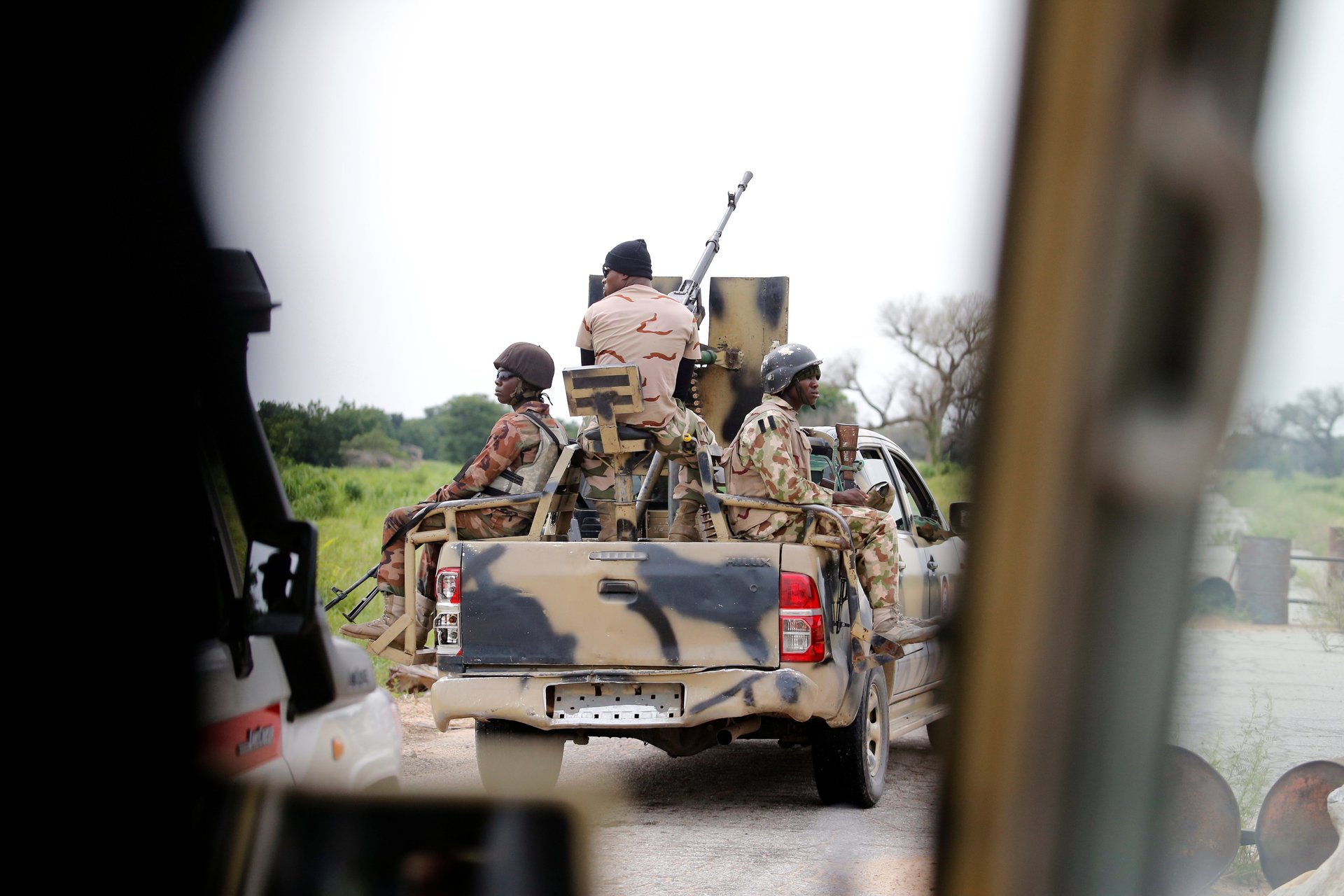Nigeria’s military is in a battle with humanitarian NGOs in the country’s troubled northeast
Nigeria’s military has resumed hostilities in the country’s northeast with one of its frequent targets. Not military action against Boko Haram or the Islamic State West Africa but instead verbal warfare with humanitarian and non-governmental organizations (NGOs).


Nigeria’s military has resumed hostilities in the country’s northeast with one of its frequent targets. Not military action against Boko Haram or the Islamic State West Africa but instead verbal warfare with humanitarian and non-governmental organizations (NGOs).
Over the past two weeks, the army has shut down regional offices of two prominent NGOs operating in the country’s northeast amid a brutal insurgency led by Boko Haram. First, it sealed offices of Action Against Hunger, the global non-profit focused on providing food aid. It accused the international body of supporting terrorists.
That was followed by the closure of four offices of Mercy Corps, another prominent non-profit in the troubled northeast region. (In response, Mercy Corps has suspended its operations in parts of the region.) The army’s moves are in keeping with the a long-running antipathy towards NGOs in the region: last December it temporarily banned UNICEF operations, claiming the agency spied for Boko Haram terrorists.
It’s a problematic situation in a region where a decade-long insurgency has left millions displaced and in stark need of humanitarian support. With the Nigerian government lagging in catering to displaced citizens, the gap has increasingly been filled by various NGOs working across health, sanitation, food aid as well as skills training and support.
But some of the humanitarian groups’ practices, including providing food aid to camps of displaced people, allegedly without discrimination, somewhat contradict the army’s tactics. “Historically, Nigeria has been known to use food as a weapon of warfare. If you think as far back as the civil war we’ve used denying access to food [as a tactic],” says Abiodun Bayiewu, executive director of Global Rights, a human rights abuses group. “But this is not a very straightforward matter because in those camps, there are children and non-belligerent people.”
That sentiment was corroborated by an official of a non-profit active in the region who spoke on condition of anonymity: “Starvation is a military strategy. But if we’re doing food distribution, NGOs don’t pick sides—and the army doesn’t like that.”
There’s also the theory that the activities of the NGOs in the region reveal not only highlight the scale of impact of the insurgency but also the humanitarian shortcomings of the government.
Another NGO official working in Borno, the epicenter of insurgency, who also asked to speak on condition of anonymity, says the government likely sees the activities of humanitarian groups as “bad PR for Nigeria.” “Typical Nigerian culture is to do eye-service and not to be honest about the reality,” the official said. True to form, Nigeria’s government accused the United Nations and its agencies of exaggerating the scale of an imminent famine in the northeast in 2016 despite corroborative evidence from groups active in the region.
In some cases, non-profit groups are also directly critical of the army’s heavy-handed methods. In 2015, a damning Amnesty International report accused the military of arbitrarily detaining and killing up to 7,000 civilians amid the insurgency in the northeast. And, for an entity not used to scrutiny given Nigeria’s decades of military rule, such reports are jarring. Indeed, after another Amnesty report last year accused the military of not doing enough to end brutal pastoral conflicts in Nigeria’s middle belt region, the army called for the closure of the human rights group’s Nigerian offices.
Ultimately, the strained relationship between the army and key humanitarian groups comes at the expense of local beneficiaries who will remain without aid. “The little development that the northeast has enjoyed has largely come from civil society organizations, most of them being international,” Bayiewu tells Quartz. Shutting them down, Bayiewu adds, amounts to “shooting ourselves in the foot.”
Being in the cross hairs of the military adds to the daunting odds humanitarian groups face in an already volatile region. Over the past year, aid workers have increasingly become targets of Boko Haram terrorists resulting in several abductions and executions.
Sign up to the Quartz Africa Weekly Brief here for news and analysis on African business, tech and innovation in your inbox